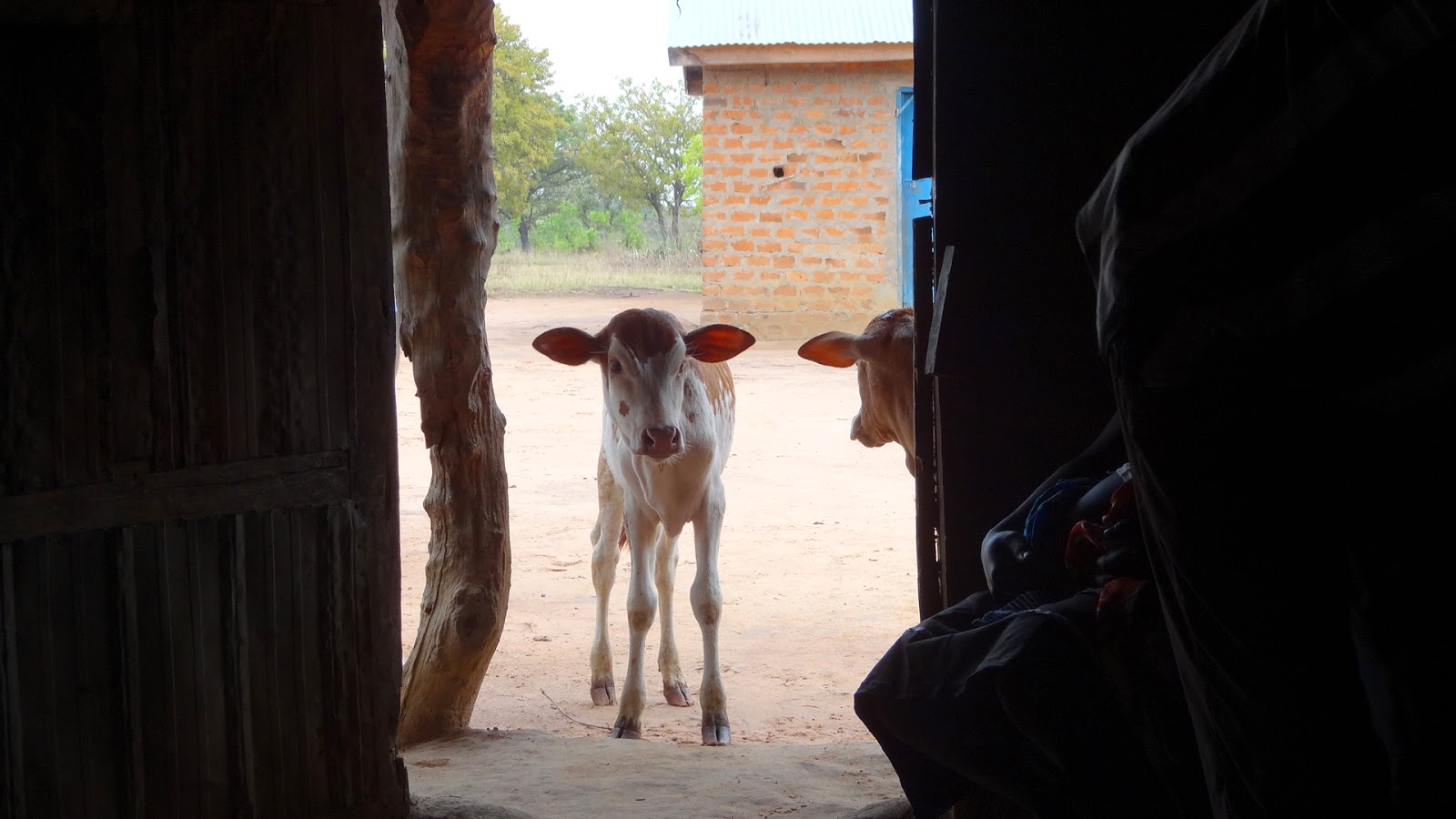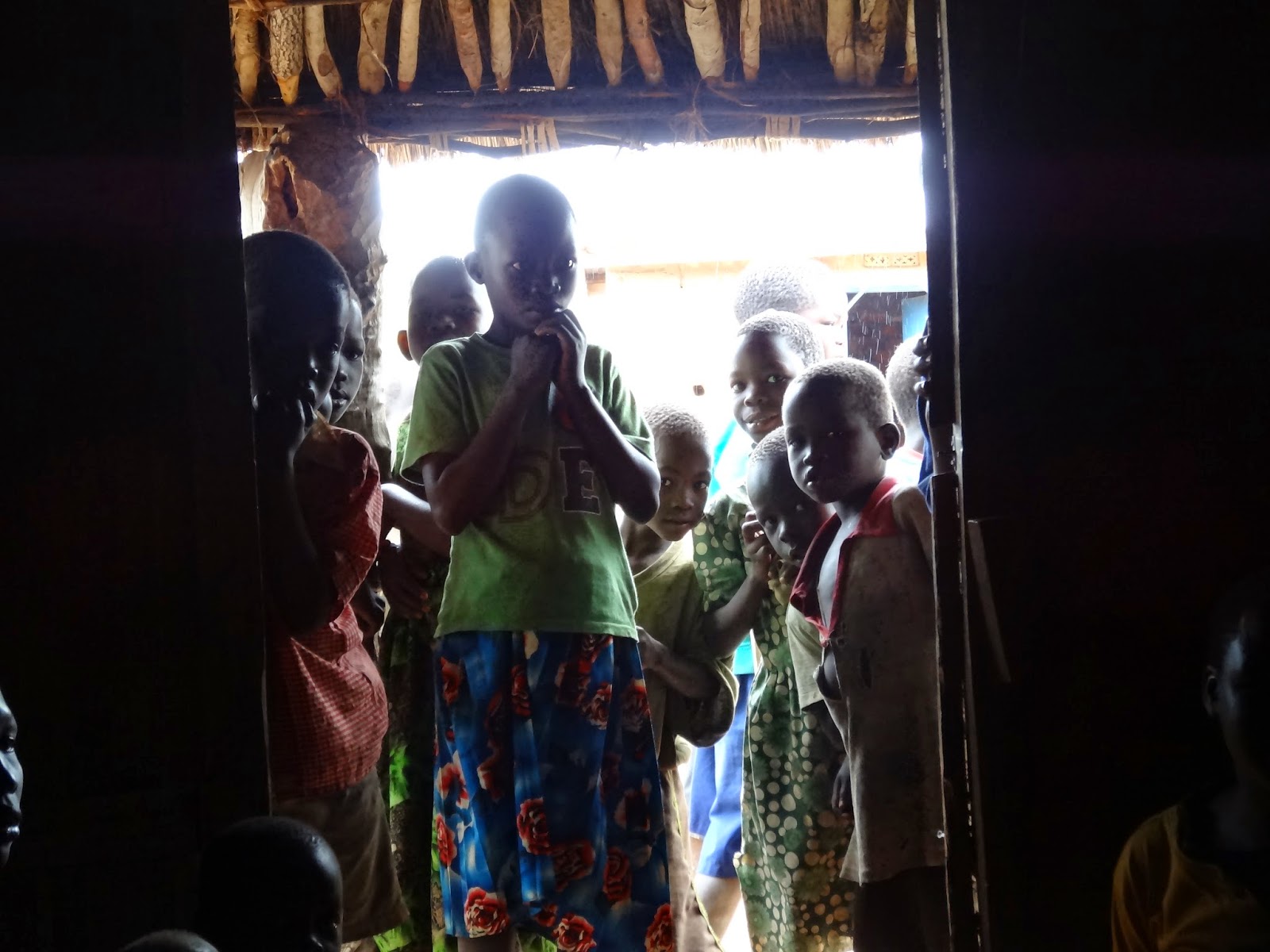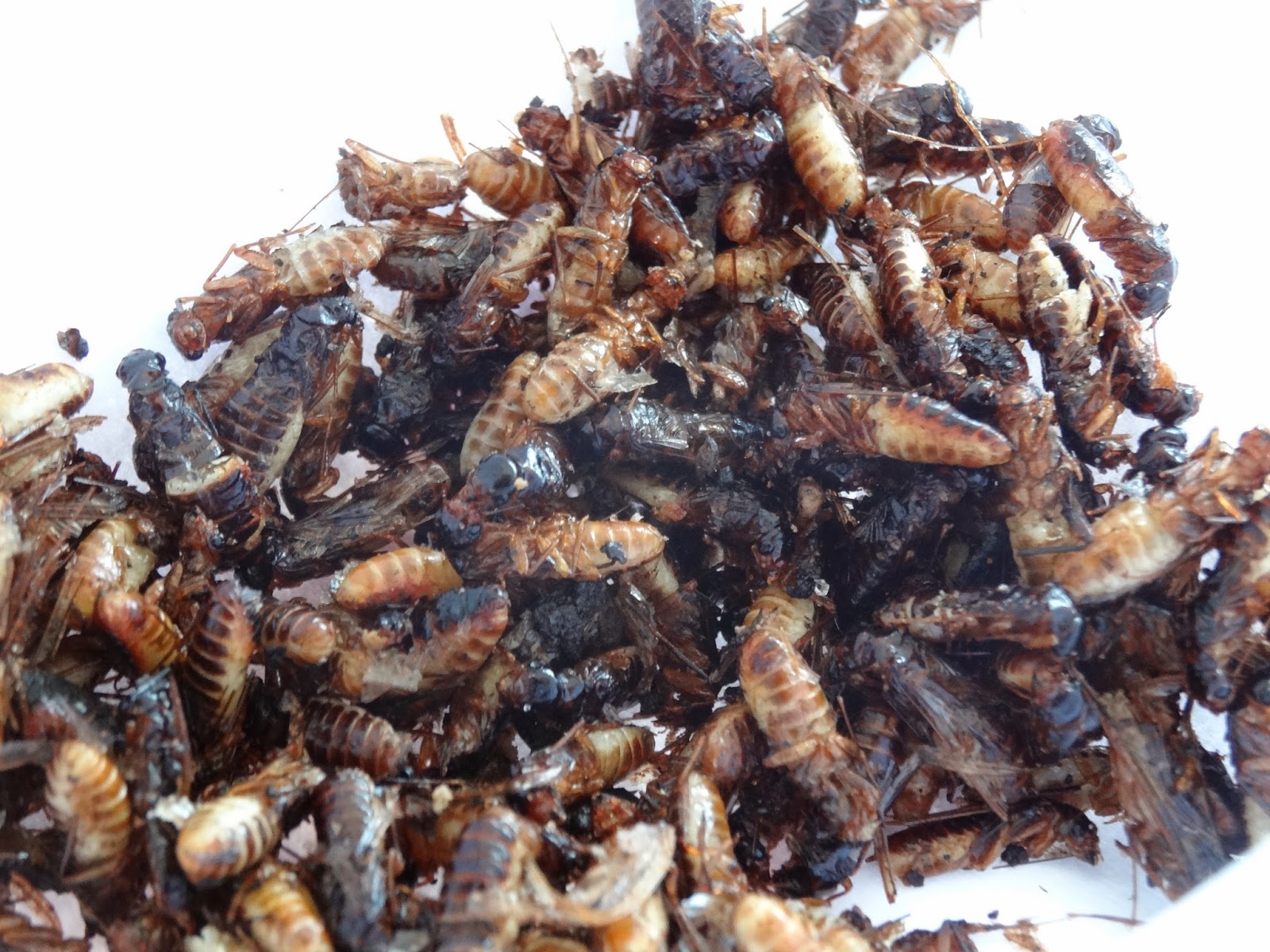Sara and I both wanted to write about our last weekend in the village and talk about different things. Please read her post first.
Here are some pictures of our drive from Soroti to Milmil village. This time we drove ourselves. We still don't want to drive in Kampala, and we still don't exactly relax while driving, but we feel much more confident and safe now. We are more used to a manual transmission, used to driving on the left, and good at dodging cows and potholes on the road.
At the end of our journey to get to their home, we had to leave the road and drive on the footpaths. When we do this I always worry about driving over crops.
We drove with a staff member from KIDO, named Andrew Ben. He is a pastor who now works full-time for KIDO managing the PEP program. We are just learning about PEP, Participatory Evaluation Process. If you go to the link, you can read more about PEP and read some testimonies of its results as used by PAG in Uganda. Andrew explained the program to us in detail over the weekend and I am thoroughly impressed by what I heard. It has very similar ideas and themes to the book When Helping Hurts. Over the next weeks I will be teaching a couple hundred pastors the principles from this book with the semi-informal curriculum I've developed, and my training will coincide nicely with what they are already doing with PEP in Amuria and Katakwi.
Andrew informed us that it takes three years to go through PEP with a single community. He starts by training the PAG pastors in the PEP Bible studies. Eventually the pastors take the rest of their church members (and members of other denominations in the community) through the same Bible studies. Then they start thinking about what assets their community has and how to develop their community on their own. The results have been amazing by the sounds of it. One community broke down denominational barriers and all of the churches raised money together to build each others' church buildings one at a time, and started worshiping together regularly. Another community started a nursery school. People recognize what assets they have and start new projects like citrus orchards or producing bricks to sell. Andrew reported to us that part of the program had them look at the amount of work husbands and wives did during the day. Husbands broke down in confession before God and their wives at the lack of work they do compared to their wives, that it is not right to treat their wives as slaves. They are now changing their work habits. Andrew reported that people are realizing it is not good to depend financially on "the whites." People are looking at their own resources and how they can multiply them as Jesus multiplied the loaves and fishes to feed the 5000 (one of the Bible studies). Churches are now thinking about holistic ministry. What KIDO is doing with PEP almost makes me wonder if my "When Helping Hurts" training will be redundant, but I hope it serves to deepen and reinforce what pastors have already learned through PEP.
Back to the village visit - We went on a two-hour walk on Friday afternoon while it was raining. The temperature dropped considerably and we were moderately cold. But the Ugandans were very cold! Our host family had many children around and they joined us on our walk. And then during our walk, every time we passed a new home we picked up a few more children. This video shows about half the number of total children we had by the midpoint of the walk. It was very fun, and I had fun joking around with the kids and at one point jumping and scaring them, which they thoroughly enjoyed. Probably the first time a muzungu has ever roared at them!
At some point during the weekend, we talked about clothing styles. Someone wondered if American boys, who sag their trousers so that their underwear is showing, are gay. We have no idea how they got that idea, but we agreed that it was a strange fashion style. One Ugandan described it as if they had defecated in their trousers and were walking around that way :)
The "mzee" (old man in Swahili), the patriarch of the home we stayed at, was a very funny man. I enjoyed hanging out with him. He even said we could come build a house on his land and he would share his land with us. Here are some pictures of videos of him giving us some entertainment. First, he showed us his spear he uses for hunting. (He also has six dogs which he uses for hunting).
I got to try it out too!
Here he is with his daughter showing us a bit of traditional dancing. They are saying "thank you" over and over again, and our names are thrown in there a bit too.
He also showed us his chameleon. It's not really a pet, but unlike other Ugandans they do not superstitiously fear it, and do not wish to kill it. So he lets it hang out in his banana tree and eat flies. According to my reptile book (and confirmed by an expert over email), this is a "Slender Chameleon."
And his daughter made a traditional baby carrier out of a goat skin to show us.
This is the latrine we used for the weekend:
The Iteso people have been through a lot. Between Joseph Kony's LRA, and the Karamajong, and droughts and floods, it seems to never get easier for them. We were surprised to find out that many of the people we fellowshipped with from this community had only returned home from the IDP camps three years ago. They were actually still living in the camps when we were in Uganda in 2009. Things were safe already from the LRA in 2009, but it takes a while for people to be ready to return home and start all over from scratch, leaving the security of the camp, after being in the camp for ten years. It's hard to imagine what life in a camp like that for ten years would be. So much disease, squalor, boredom, and claustrophobia. Here is a picture of where the camp was in this village. We walked by it and the latrines were still there and are being used.
At church on Sunday I preached at Okuda PAG -the village we walked to on Saturday to meet groups KIDO works with. Interestingly they had a woman pastor, not too common here, even though it is allowed in PAG. Here is a picture and video of some of the singing.
Here are a few more pictures around the home at the place we stayed.
How many of you let your baby play with a machete? :)
Kids hiding from the rain.
On a long walk on Saturday we found this chameleon crossing the road. It is a "Smooth Chameleon." I decided to keep him for a pet. This might seem odd and against good environmental practices but it is actually a great idea in East Africa. People usually hate chameleons and view them as bad luck and have many other superstitious beliefs about them. They usually kill them. By having one as a pet, people will see there is nothing to fear and that they are good to keep around. I built a cage for him outside, and eventually you'll get to see more pictures of him.
During the weekend I needed some way to feed my new chameleon, and God provided a shower of "white ants" which are actually flying termites. They were flying all over the place and they are easy to catch. And my chameleon liked to eat them. You can just make them out in this picture as they catch the rays of the morning sun. I had fun catching them before church.






















No comments:
Post a Comment